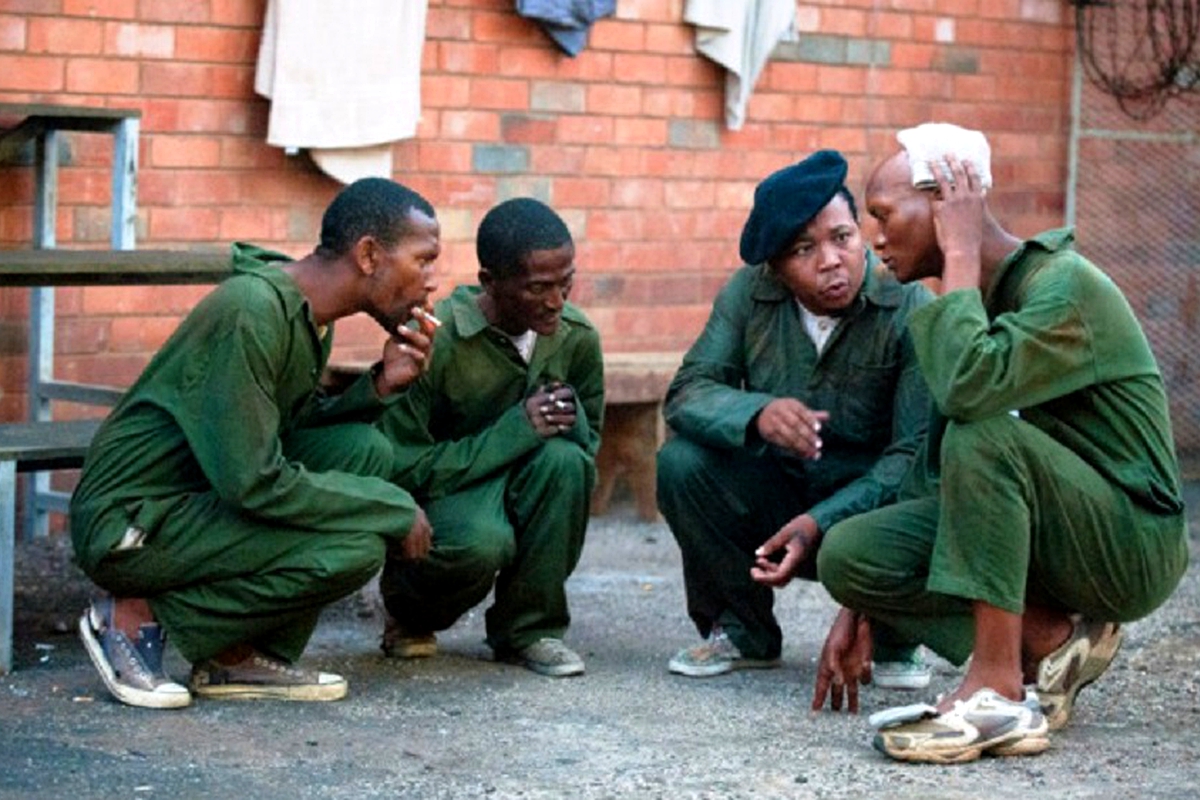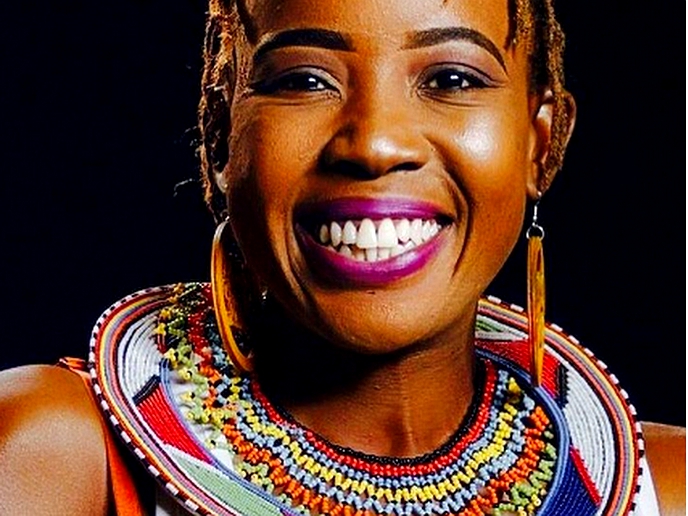BEHIND prison walls in many southern African countries, are several untold secrets of a system usually never been spoken about, but that is alive and highly operational.
society
May 25, 2021
STAFF REPORTER
8 min read
It’s not cool being a gang member – ex-inmate

Many decades of prison life have resulted in generations of gangs only known by the Numbers - 26, 27 and 28.
These gangs operate like armies with generals and subordinate officers who carry out deadly tasks on a daily basis, in order to survive.
It is a kill or be killed situation.
This is a way of life that is an art of survival for the gang members. Since these gangs were established within prison walls, a prison culture was inherited.
The gangs then created a language of their own to save-guard their activities and protect their codes as well as secrets.
In prison, gang membership is theoretically voluntary, but the fact of confinement for up to 23 hours a day in overcrowded communal cells places enormous power in the hands of the gang hierarchies.
Nevertheless, not all prisoners are gang members, though most inmates may have to cooperate with the gangs in various ways.
Several ex-prisoners have expressed their desire to be free of the gang systems and be removed from the pressures inherent in sharing cramped quarters with groups founded on violent activity.
Gangs may deprive non-members of all their personal belongings or deny them access to other privileges. A number of former prisoners have narrated the experience of arriving in the section of prison for awaiting trial to have everything they had brought to prison taken away from them.
One former inmate described having to "buy" the right to a bed from gang leaders in the cell. Another said he was deprived access to his visitors on several occasions by gang leaders who had demanded payment to allow him to be visited by family and friends.
In theory, the number gangs are not antagonistic to each other, but in practice, they compete for scarce resources, including the recruitment of other prisoners.
Accordingly, the potential for violent conflict is great. Each prison will tend to have one dominant gang, which imposes its own discipline beneath that of the prison authorities.
Lesotho has some small-time criminals, who have aligned themselves with the much organised and bigger South African prison-formulated gangs.
The three predominant gangs operating in and outside prisons in the country include the 28s, 27s and 26s, known collectively as the "number gangs."
They trace their origins, by an elaborate oral history, to the late nineteenth century, when gangs were formed in the all-male compounds occupied by migrant labourers working in the mines on the Witwatersrand, near Johannesburg, South Africa. A man called Nongoloza Mathebula (1867-1948), is credited with the establishment of the basics of the gang system.
Mathebula’s disciples later spread across South Africa and into the neighbouring countries, including Lesotho.
In a documentary titled “Art of Survival”, a Sergeant of 28, Sonwabe Lose, who has been jailed for life in the Middledrift Maximum Prison in the Eastern Cape, explained: “According to history, Jan van Reibeeck arrived in the Cape in 1652. Upon his arrival, black people were cheated out of their wealth with mirrors and other things because they were seeing those things for the first time. Nongoloza decided he was going to rob the white people who stole from the blacks. He lived in the caves of Pietermaritzburg.
“When he was finally arrested, he realised that the same people he had robbed were going to look after him in prison, so he had to make a plan and that’s how it all started. The apartheid treatment did not rehabilitate the black prisoners but made them even more violent.”
Each of the gangs has an elaborate quasi-military command structure, involving up to 30 different ranks; each rank has specific hierarchical duties and internal discipline is strictly maintained. Promotion, particularly to the higher ranks, may be obtained by committing acts of violence on persons outside the gang. The gangs themselves are distinguished according to their aims and activities: the 28s are regarded as the senior gang, and are distinguished primarily by their organised system of "wyfies" or coerced homosexual partners; the 26s are associated with cunning, obtaining money and other goods by means of fraud and theft; the 27s protect and enforce the codes of the 28s and 26s, and are symbolised by blood.
“To qualify as a 28, you must spill blood before you can join,” Lose added.
Other gangs, of more recent origin and regarded as illegitimate by the number gangs, are the Big Fives, who collaborate with the authorities as informers and in other ways; and the Air Force, who organise mass escapes.
Attempts to disturb this structure can lead to warfare between the gangs; large influxes of prisoners from other parts of the system may also upset an existing equilibrium.
“I am a die-hard member of the 26 who has before, been imprisoned in Hlotse, Leribe. Now my duty is to fulfill the mandate of the organisation wherever I am, which is to ensure that members still in prison are taken care of; also to pursue ‘outside jail’ missions per instructions laid out by my ‘general’. Once you join the gang you have to conform to its principles. Once you are in, there is no way out, or else blood should be spilt!” said ex-prisoner going by the gang name - Tonto.
Elaborating on the number gangs, Lesotho Mounted Police Service (LMPS) Lance Sergeant Taelo Lentša said the Number 26's main objective is to gather money and wealth at all costs except murder, unless they have reason to believe their lives are in danger, or another person is blocking them from achieving their target.
He said the gang starts recruiting children as young as eight years old, both boys and girls.
The children are utilised to steal from their own families and other people. They are also used in robberies and any activities that can help them get their hands on money.
L/Sgt Lentša says girls in the gang are referred to as the “Queens of London”.
They are also used as tools to distract men so that the male gang members can get to their belongings. Women use seduction to shift targets’ attention or focus.
Then there is the notorious Number 28. L/Sgt Lentša refers to this outfit as a band of murderers and rapists.
“They do not steal money or do any robberies, theirs is to rape and kill. In this gang, homosexuality is common and is mandatory. They swear allegiance to spilling human blood, hence they always carry a knife or any stabbing object with them,” he says.
The gang members, he further indicates operate only in darkness and go by the motto – “Prison is my home”.
Enjoy our daily newsletter from today
Access exclusive newsletters, along with previews of new media releases.
As the motto says, the members are always in and out of prison most of their lives. Their tattoos are usually knives or sharp stabbing objects that are accompanied by drops of blood, a cross with a tomb next to it, a heart pierced with a knife, or the name Nongoloza.
According to L/Sgt Lentša, these gangs have a few things in common.
“It is mandatory for the members to use drugs, especially dagga, once one is in the gang, there is no turning back - one way in, one way out, through blood, and the adult members do not recruit their biological children.”
Recently, the Lesotho Defence Force (LDF) rounded up young members of small-time gangs from Naleli, Koalabata and Thetsane in Maseru.
After their apprehension, the members who include both boys and girls are reportedly still being detained and offered psychological as well as spiritual counseling.
The members are suspected of been involved in several criminal acts in their respective communities.
Other relevant stakeholders have also offered their services to the youth as a way of rehabilitating them.
A resident of Mapoteng, Berea, Selebalo Lema’s son died two years ago after he was killed in a robbery that went wrong.
Narrating the gloomy tale to Metro, Lema says he was not even aware that his son was part of the number gang.
“My boy and some of his friends would hide in the forest and practice the principles of the Number 26 gang, but I only heard about this after he passed on. They would plan how to execute robberies using knives and firearms. I did not even know that he owned a gun.
“On the fateful day that he died, he before he left home, I overheard him talking in his bedroom, uttering words I that I was not familiar with. I later received a report that he had been stoned to death with two others by villagers after they attempted to rob a local grocer at gunpoint.
“I wish I had done something to stop him but it was too late. I can only advise other parents to closely monitor their children’s movements and habits on a daily basis,” he miserably says.
A member of the Ex-Prisoners Association of Lesotho, Kemoho Ngopane has also warned young people to refrain from getting involved in the number gang activities, saying they could end up prison or in their graves.
“Sometimes you find that these children are good people but are too forward on things. They utter words like ‘Hoshe’ when they greet other people, not knowing which groups such a greeting belongs to, and in the process, they end up getting beaten up. When you play with phrases like ‘Hola 7’, that means death to other people in or from prison.
“People are always enticed into the gangs not aware of the consequences involved. Many of our brothers were slapped with long prison sentences because of the crimes they committed in the name of these gangs.
“My advice to the youth is stay away with these things, it is not ‘cool’ like they say, being a gang member,” Ngopane warns.
Retired Prison Warden Lethole Lethole says life behind bars changes one’s life completely.
“Prison is not a holiday destination for anybody. Whether you are the general of the gang, the master mind criminal or just an ordinary person, the experiences are not pleasant.”
Tailored for you






